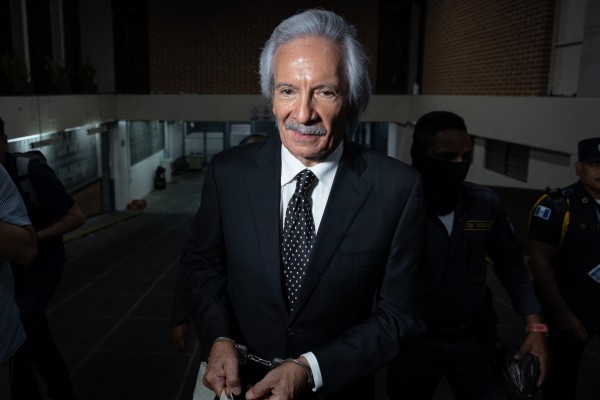The International Press Institute spoke recently with America’s Sue Wilson, author of the blog SueWilsonReports.com and Emmy-winning director of the media reform documentary, “Broadcast Blues.” The sometimes controversial broadcast journalist spoke to us about fairness and balance in the media, her quest for more voice on radio and the “attack” on Julian Assange.
Watch the clip from “Broadcast Blues” here
IPI: What led you to make “Broadcast Blues”?
SW: Thomas Jefferson said, “A country cannot be both ignorant and free.” I made Broadcast Blues because I care so much about freedom and this supposed land of the free. The truth will set us free – but today’s broadcast media is not truthful, it is enslaving us.
Having worked for CBS, PBS, FOX and NPR for more than 20 years, I saw first hand how changes in media policy are destroying the discourse of the United States. We have little ability anymore to have honest discussions because people are so grossly misinformed by a media which puts profits ahead of the public interest. Two key broadcast policy changes – getting rid of the Fairness Doctrine and then allowing, with the 1996 Telecommunications Act, all U.S. radio stations to be controlled by a handful of private corporations – need to be re-addressed. Fairness and balance in media are not just buzzwords; they are the central tenet of democracy.
IPI: What message do you hope Americans walk away with after seeing the film?
SW: We the People of the United States do have the power to reform broadcasting – if we get together and flex our muscles. Politicians only respond to pressure, it’s time for them to feel some heat. It’s policy, people – let’s change it!
IPI: Are you at all concerned that your movement could be an impediment
to press freedom?
SW: No. I am seeking more freedom for more voices, not fewer. Right now, virtually the only viewpoints allowed on the radio (which is still U.S.A.’s number one source of information) are pro-corporate, neo-conservative and right wing. Views from the left, the middle and even the right – if they are not pro-corporate – are not given any airtime.
The Right Wing in this country likes to say we have a liberal media. Let me dispel that myth: There is no “liberal media” in this country, and they know it. It’s a talking point that tested well, and they’ve been pushing it for a generation so people believe it. (Best not to confuse liberalism with journalism.) Another myth: “Conservatives” have the radio airwaves because the “Liberals” own the newspapers and Hollywood. Wait a minute. If you have enough money, you can start a newspaper, you can make a movie, you can even start a university. There is no one to stop you. But you cannot buy a radio station: the GOP-controlled corporations aren’t selling.
IPI: It is widely believed by those inside and outside of U.S. borders
that America has the best press freedom in the world. Do you also
believe that to be true?
SW: I wish I were better traveled and could answer this from a first-hand perspective, but I’m not. What I hear from respected friends and colleagues is that broadcasting is far better in other countries than in the U.S.
IPI: What have you learned – or confirmed – about the U.S. media during
the last year since your film was first premiered?
SW: A study just came out from the University of Maryland (see here) that shows voters in the U.S. are grossly misinformed. The two big culprits: Campaign ads that lie (as they are allowed to do) and Fox News. (They didn’t study Talk Radio, which has a far greater reach than FOX.
So it is clear that misinformation is ruling the country… and it’s insidious. People don’t know they are being misinformed, and they like to hear the stories which support their own world view. They also don’t know the difference between fact and opinion anymore. It’s a dangerous cocktail.
IPI: In your view, do the media have too much freedom?
SW: Only in narrow ways. I believe if broadcasters are going to make billions of dollars airing campaign ads, those ads should be true. Otherwise, let’s ban all political campaign ads entirely and force candidates to debate on TV, not just run commercials.
I also think the right wings of the country are crying about taking away their “freedom of speech” anytime someone like me starts talking about fairness. But freedom of speech for whom? On the radio in the United States, it’s freedom of speech for corporations and pretty much no one else. Radio Speech is Not Free Speech; it is owned and managed for political gain and profits. That needs to change.
IPI: Today, a lot of young people get their “news” from the internet. Should the internet be regulated? Can it be regulated?
SW: No, the internet should not be regulated. There’s a huge debate right now over “net neutrality” in this country. Net Neutrality means keeping the internet just the way it is right now, rather than turning it into something that resembles cable TV packaging. Anti-net neutrality proponents are trying to trick people into thinking that the government wants to run the internet. No, it’s private corporations that want to run and profit from the internet. They want to keep certain voices from emerging, as they have on radio. We the People are fighting to prevent that. I hope we prevail.
IPI: What’s your professional background?
SW: Starting in 1987 (working under the Fairness Doctrine), I have worked as a producer and on-air talent for CBS, PBS, FOX and National Public Radio. I’ve been really lucky, because I managed to do long-form investigative journalism, and I have Emmy awards, awards from Associated Press, RTNDA (Radio Television and News Directors Association) and PRNDI (Public Radio News Directors Inc.). Now I blog for the Huffington Post and my own blog, SueWilsonReports.
IPI: Governments in developing countries often use the excuse that
journalism is shoddy, untrue, that journalists tend to be irresponsible as an argument for imposing laws that regulate the media, particularly newspapers. But that kind of regulation is an attack on press freedom. Having said that, what is the responsibility of journalists – whether newspaper or television – in ensuring press freedom?
SW: We journalists do what we do – we report. We can’t help ourselves, it is in our blood. And we are under attack, evidenced by the jailing of Wikileaks’ Julian Assange and the U.S. Department of Justice threatening all news media for publishing leaked information.
The big trick, though, is getting funding for professional journalists. There is an attitude in this nation that journalists should just volunteer; I think it stems from a lack of appreciation as to how much work journalism takes, and how important it is to democracy. Tens of thousands of reporters have been fired in this country, so we are losing boots on the ground to dig up critical information. Citizen journalists can be fine – or not, but we do need to support the professionals.
IPI: How can people get a copy of the documentary?
SW: Public Interest Pictures will be making it available sometime soon.
Inside the United States, I can provide copies to grassroots groups and organizations that wish to host screenings. Contact me directly at suewilsonreports(at)gmail.com for details.


